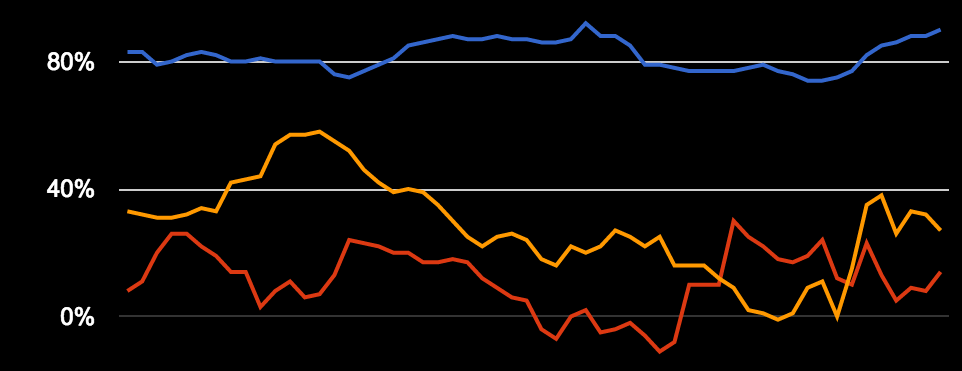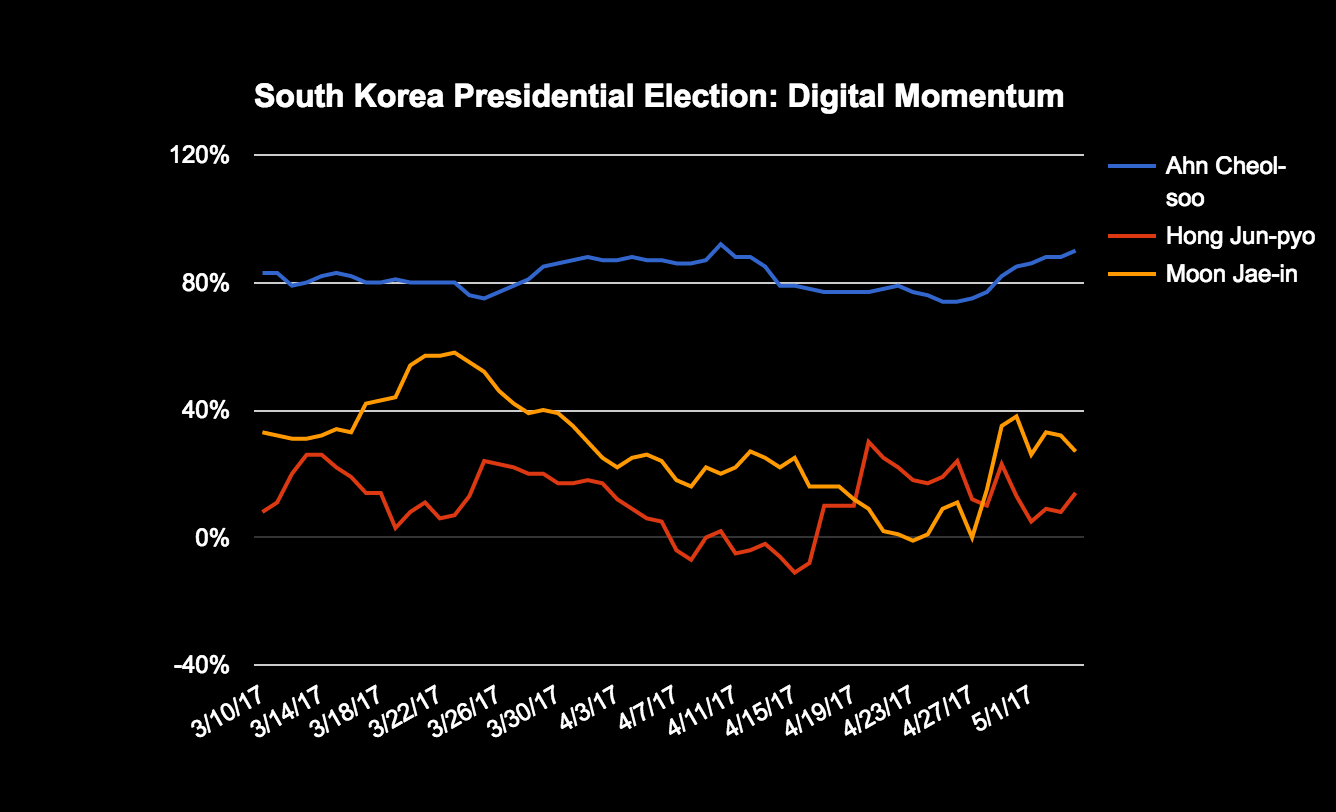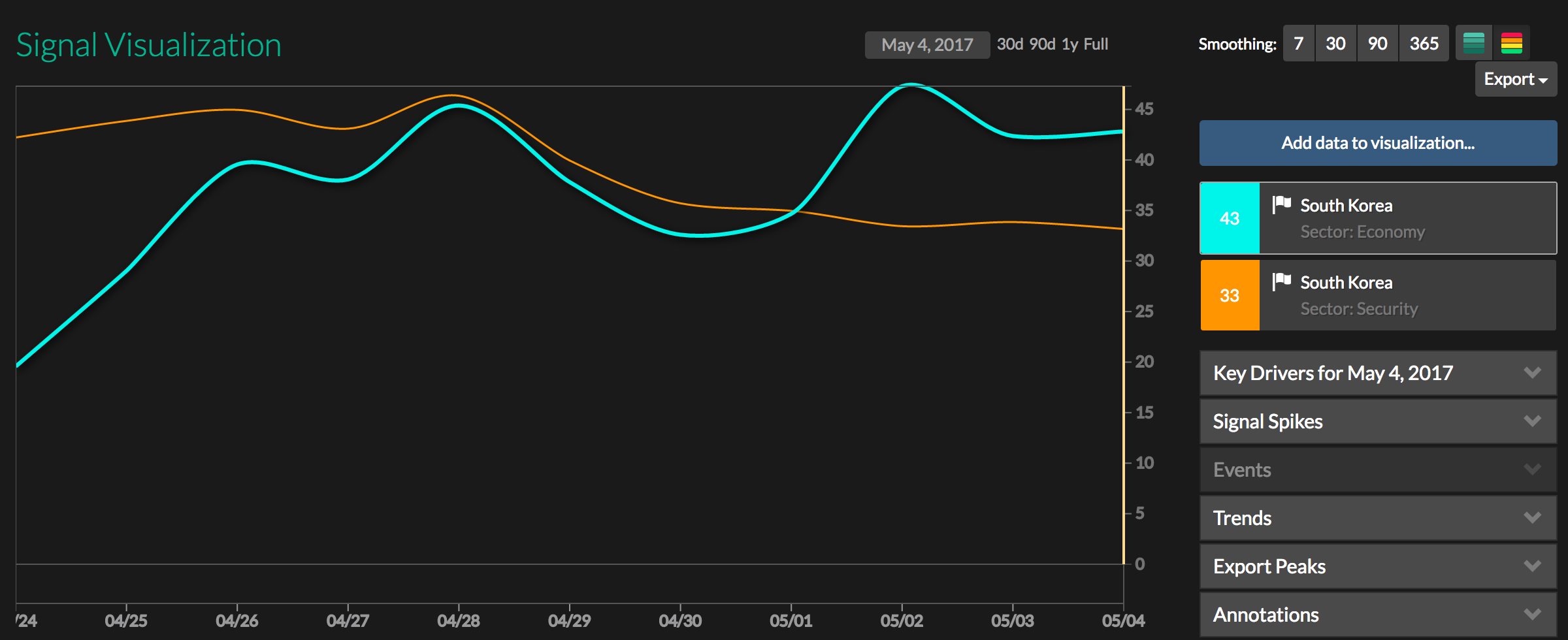
Polls Quiet, Predata Signals Take the Pulse of the South Korean Electorate
On May 9, South Koreans go to the polls in a snap presidential election to replace Park Geun-hye, who was removed from office in March on corruption charges. The front-runner is Moon Jae-in of the left-leaning Democratic Party. A human rights lawyer and former presidential chief of staff, Moon narrowly lost the 2012 election to Park. Running second is the centrist Ahn Cheol-soo, a software mogul with a populist streak who emerged as a dark horse in late April. He has attempted to poach votes from conservative candidate Hong Joon-pyo, whose party has been severely tarnished by Park’s ignominious fall.
The latest public opinion surveys found Moon held a commanding lead. But a polling blackout took effect on May 3, leaving observers to wonder how public sentiment may shift in the crucial week before balloting.
With the pollsters dark, Predata signals monitoring social and collaborative media conversations offer insights into which candidates and issues are drawing the attention and interest of voters. Though not a replacement for polling, these signals can reveal the concerns and preferences of a population in a country where almost 100 percent of households are online.
Moon Also Rises
Though Moon leads in the polls, Ahn has maintained a steady dominance in “digital momentum,” a measure of each campaign’s influence and support online. The scores below represent how strongly attention to a candidate correlates with the overall social media conversation about the election. (For more on digital momentum, see this primer)

It is no surprise that Ahn, a software mogul whose political rise since 2011 has depended on a noisy social media presence, has led the digital campaign. Noteworthy is Moon Jae-in’s sudden rebound in late April.
That surge in online engagement came amid the decision to accelerate the deployment of the U.S.-supplied THAAD missile defense system, which became operational May 2. The rush to activate THAAD before a new administration could renegotiate rankled even hawkish, pro-U.S. South Koreans. President Trump then fueled negative sentiment further by declaring that, contrary to the existing deal, South Korea should pay for THAAD.
Moon, who has vowed to stand up to America, is the only major candidate to call for a suspension of THAAD pending a policy review. That bump in his digital momentum score suggests popular anti-THAAD anger may have benefited Moon’s candidacy.
Economic Security
Though the world is focused on security in the peninsula, the South Koreans living on it appear more concerned with the economy. Especially for those born after the war, rising unemployment, slowing growth, and corruption appear to be more pressing concerns than the threat of the North.
Predata signals show that with the vote approaching, online conversations about the economy are louder than those about national security.

If economic reform is the main concern, Moon again stands to benefit. He has proposed a nearly US$9 billion fiscal stimulus to spur job growth and small business creation. Accordingly, the South Korea stock exchange is surging to record highs on the expectation of his victory.
Ain’t no Sunshine?
At a time when the United States is adopting a more confrontational posture toward the North, Moon is calling for dialogue. He wants to restore the Sunshine Policy of peaceful coexistence championed by his liberal predecessors. This could mean negotiations, increased aid, and commercial cooperation, including the reopening of the Kaesong Industrial Complex, a joint North-South venture scuttled in 2016.
But Moon has said it will be impossible to renew dialogue with the North if it conducts another nuclear test. Beyond Parallel will continue to track Predata signals built to anticipate North Korea weapons tests. 
